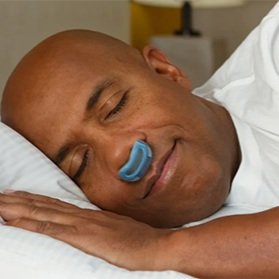October News 2023
October 26, 2023
Sleep apnea lowers blood oxygen, upping heart risks
U.S. News
New research shows that sleep apnea may increase the risk of heart attack and stroke as erratic breathing causes oxygen levels to drop. Researchers said falling oxygen levels mostly owed to obstruction of the airway and not other factors, such as obesity or reduced lung function.
October 24, 2023
Dr. Reena Mehra, MD, of the Sleep Disorders Center at Cleveland Clinic, explains how biomarkers and endophenotypes are beneficial for personalized patient care
HCP Live
Sleep studies provide a wealth of physiological information that can advance many aspects of clinical practice. In an interview at SLEEP 2023, Dr. Reena Mehra, MD, MS, director and professor of medicine at the Sleep Disorders Center at Cleveland Clinic, highlighted the potential offered by endophenotypes yielded from sleep studies in predicting clinical outcomes, including conditions like atrial fibrillation (AF).
October 19, 2023
CPAP lowers blood pressure in select patients with severe obstructed sleep apnea and hypertension
Pulmonology Advisor
According to a study published in the British Medical Journal Open Respiratory Research, among patients with severe obstructive sleep apnea and untreated hypertension, those whose high blood pressure is induced by transient apnea events are likely to achieve lower blood pressure by using a CPAP machine.
October 17, 2023
Sleep apnea devices market size is projected to reach $6.79 billion by 2030, growing at 6.30%
Yahoo! Finance
According to a recent research report, North America is one of the leading regions for adopting sleep disorder-related technology. Some sleeping disorders are driving the market as respiratory diseases become more common. The growing use of sleep apnea devices by people who have sleep disorders or other medical conditions that can cause them is a main factor driving growth.
October 12, 2023
Understanding more about the influence of gut microbiome, other factors on obstructive sleep apnea
NeurologyLive
During the 2023 SLEEP Annual Meeting, held in Indianapolis, a pediatric neurologist presented about the role certain factors can put an individual at increased risk for OSA. Following the presentation, she shared with NeurologyLive® why researching the precursors to OSA will help better phenotype patients, why gut microbiome plays such a significant role and how it may influence other sleep disorders besides OSA, and why nutrition has become a major topic of discussion between patients and clinicians.
October 11, 2023
Standard tests may underestimate severity of sleep apnea in Black patients
US News
When it comes to diagnosing sleep apnea, current screening methods may put Black patients at a disadvantage, new research suggests. Findings highlight the need to rigorously test the accuracy of oximeters across diverse populations and also to consider whether factors other than the oximeter’s characteristics could explain differences in oxygen patterns with breathing pauses.
October 5, 2023
Study reports multiple insomnia symptoms raise stroke risk in people under 50
CNN
The more symptoms of insomnia you have the higher the risk for a stroke, especially if you’re younger than 50, according to a recent study. Having sleep apnea — a condition in which people stop breathing multiple times per hour — was associated with a threefold increase in stroke risk, the study reported.
October 3, 2023
The one time talking in your sleep could be a serious warning sign
Health Digest
More often than not, sleep talking is actually harmless. But the one time it shouldn't be ignored is if it were indicative of a more serious health condition, like obstructive sleep apnea. While health professionals aren't exactly sure of the real reason people talk in their sleep, there is some association with obstructive sleep apnea and parasomnias like sleep talking. Parasomnias refer to absurd or disruptive behaviors that occur when someone is asleep. Sleepwalking, sleep eating, sleep terrors, and sleep paralysis are also examples of parasomnias.







